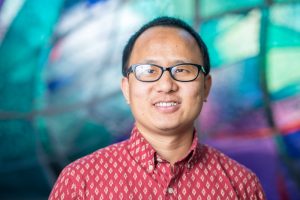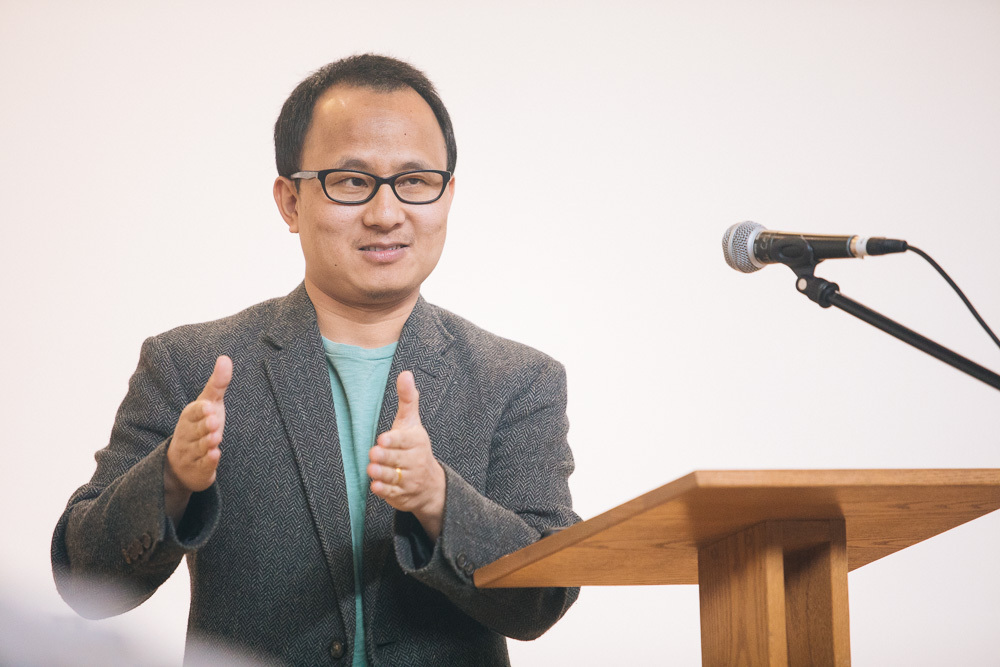Shankar Rai has a message for the youth of the Bhutanese-Nepali Churches of America (BNCA) this summer: Love God with all your heart and soul, yes – but also with your mind.
Rai graduated from Eastern Mennonite University this spring with a Master of Divinity degree and an MA in Organizational Leadership, and is a featured speaker at the second BNCA Youth Summit July 5-7, 2018, in Lima, New York.
BNCA Youth was formally introduced at the BNCA National Summit in Houston in 2014. The organization seeks to grow “passion for Jesus while emphasizing Christian morality, intellectualism, and Christian holistic development” in people in their 20s and 30s.
Approximately 90,000 Bhutanese refugees have resettled in the U.S. since 2008, including Rai in 2010. He has planted and pastored Bhutanese-Nepali churches in Baltimore, Maryland, and Harrisburg and Lancaster, Pennsylvania.
Addressing a younger gathering fits well with Rai’s capstone integration project at EMU, titled “Passing faith to the next generation,” and will give him a chance to address a disparity within his community.
Read about other Master of Divinity capstone projects.
“I want to see balance,” he said. “Our people have big hearts for God, but how can we love God holistically – with our minds, too?”

As a child who lived from 1996-2004 in one of seven refugee camps for Bhutanese in eastern Nepal, Rai was a natural learner whose brothers were also top students. But in the Nepali-speaking world, he said, Christianity is at times looked down on as attracting less-educated people from lower castes.
His family came to Christianity as do many Bhutanese people, Rai said – as the result of a healing. His father, a truck driver, had become severely ill from food poisoning, a sickness that continued for nearly a year and that witch doctors as well as traditional and modern medical practitioners were unable to cure.
However, Rai’s grandmother heard “that if a Christian prays, people can get healed.” A former leader of a Hindu sect, she challenged a Christian pastor in the neighborhood: “Come and pray for my son. If my son gets healed, I will be a Christian.”
While full recovery would take another year, Rai said that after being prayed for, “the medicine started to work” for his father – and his grandmother’s family became the first in their village to be Christian, in 1993.
Healings such as these have resulted in what Rai describes as “deep passion of our people to love God,” Rai said. But that means that “much of our Christianity is more about early church experiences – such as of healing and speaking in tongues – rather than focusing on knowing God through scripture.”
Now with his own seminary and university training, Rai hopes to help BNCA churches become sustainable for, and sustaining to, future generations of Bhutanese Americans.
“BNCA will be very different 20 years from now,” he wrote. “Our needs and challenges will change. Our vision and mission will be different. And our priorities will not be the same.”
